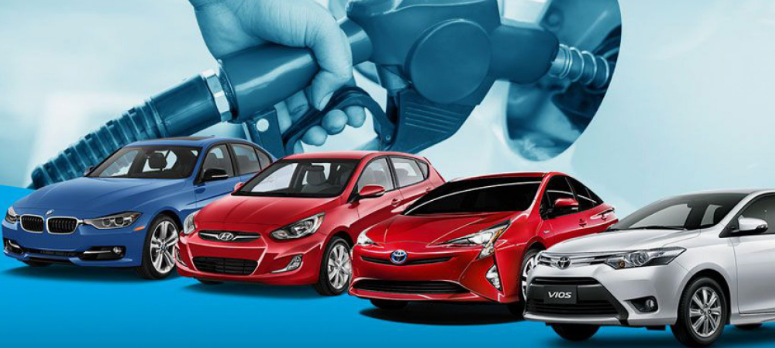How to Maximize Your Car’s Fuel Efficiency: Tips and Tricks

Fuel efficiency is not just about saving money; it’s also about reducing your carbon footprint and extending the life of your vehicle. With rising fuel costs, it has become more crucial than ever to get the most out of every drop of gasoline. Whether you’re driving an older model or a brand-new car, there are numerous strategies you can implement to boost your vehicle’s fuel efficiency. This article will delve into the most effective tips and tricks to help you maximize your car’s fuel economy while also addressing how responsible car disposal, like utilizing services such as “Cash For Unwanted Cars Midland,” plays a role in overall environmental sustainability.
Understanding the Basics of Fuel Efficiency
Before diving into specific tips, it’s essential to understand what fuel efficiency means. Essentially, fuel efficiency refers to the distance a vehicle can travel on a specific amount of fuel. Factors such as engine type, vehicle weight, driving habits, and even the terrain you drive on can significantly affect your car’s fuel efficiency.
By optimizing fuel efficiency, you can reduce the frequency of refueling, save money in the long run, and contribute to reducing greenhouse gas emissions. It’s worth noting that vehicles that are no longer fuel-efficient can be a drain on both your finances and the environment. For these reasons, services like “Cash For Unwanted Cars in Midland” offer a viable solution for getting rid of inefficient vehicles responsibly.
Regular Maintenance: The Foundation of Fuel Efficiency
One of the most effective ways to maintain or improve fuel efficiency is through regular vehicle maintenance. This includes routine oil changes, checking tire pressure, and ensuring that your engine is running smoothly.
- Oil Changes: Clean oil reduces friction in your engine, allowing it to run more efficiently. Regular oil changes ensure that your engine is lubricated properly, which can improve fuel efficiency by up to 2%.
- Tire Pressure: Under-inflated tires can increase your car’s rolling resistance, making your engine work harder and consume more fuel. Check your tire pressure regularly, especially before long trips.
- Air Filters: A clean air filter ensures that your engine receives the right amount of air, which is crucial for the combustion process. A dirty or clogged air filter can reduce fuel efficiency by up to 10%.
For older cars that are no longer benefiting from these maintenance tips, recycling through “Cash For Unwanted Cars Midland” might be the best option. This ensures that your vehicle is disposed of in an environmentally friendly manner, preventing it from becoming a source of pollution.
Smart Driving Habits for Better Fuel Efficiency
How you drive has a significant impact on your car’s fuel consumption. Adopting smarter driving habits can lead to noticeable improvements in fuel efficiency.
- Smooth Acceleration and Braking: Rapid acceleration and sudden braking waste fuel. By driving more smoothly, you can improve your car’s fuel efficiency by up to 33% on the highway and 5% in city driving.
- Speed Management: Driving at optimal speeds—typically between 50 and 60 mph—can maximize your fuel efficiency. Driving faster than this range increases aerodynamic drag, causing your engine to work harder and burn more fuel.
- Reduce Idling: Idling consumes fuel without moving the car. If you anticipate being stopped for more than a minute, it’s more fuel-efficient to turn off your engine.
- Cruise Control: On long stretches of highway, using cruise control helps maintain a constant speed, reducing unnecessary acceleration and deceleration, which can improve fuel efficiency.
If your vehicle’s efficiency remains subpar despite adopting these habits, it may be time to consider an upgrade. “Cash For Unwanted Cars Midland” provides a convenient way to sell your old car, enabling you to invest in a more fuel-efficient model.
Reducing Weight and Aerodynamic Drag
The heavier your car, the more fuel it needs to move. Likewise, increased aerodynamic drag can reduce your car’s fuel efficiency, especially at higher speeds.
- Lighten Your Load: Remove unnecessary items from your trunk or backseat. Every extra 100 pounds can reduce your fuel efficiency by about 1%.
- Remove Roof Racks: If you’re not using roof racks, take them off. They increase aerodynamic drag, which makes your car less fuel-efficient. Even a roof rack that’s empty can reduce fuel efficiency by up to 25% on the highway.
- Close Your Windows: At high speeds, open windows can increase drag and reduce fuel efficiency. Use your car’s air conditioning at moderate settings instead of rolling down the windows when driving on the highway.
For those driving older vehicles with significant wear and tear, reducing weight might not be enough. In such cases, considering “Cash For Unwanted Cars Midland” could be a wise choice, allowing you to upgrade to a more efficient vehicle.
The Role of Technology in Fuel Efficiency
Modern cars come equipped with various technologies designed to maximize fuel efficiency. Understanding and utilizing these technologies can help you get the most out of your vehicle.
- Eco Mode: Many newer cars have an Eco Mode feature, which adjusts the engine and transmission settings to optimize fuel efficiency. Using this mode during city driving can help save fuel.
- Start-Stop Technology: This technology automatically turns off your engine when the car is idle and restarts it when you press the accelerator. It’s particularly useful in heavy traffic or at stoplights and can improve fuel efficiency by up to 10%.
- Fuel Economy Displays: Some cars have real-time fuel economy displays that show you how your driving habits affect fuel efficiency. Paying attention to these displays can help you make immediate adjustments to improve efficiency.
If your vehicle lacks these modern features, it might be worth considering a newer model. “Cash For Unwanted Cars Midland” can help you dispose of your old car responsibly, giving you the opportunity to invest in a car equipped with the latest fuel-saving technologies.
Planning and Preparing for Fuel-Efficient Trips
How you plan and prepare for your trips can also impact your car’s fuel efficiency.
- Combine Trips: Instead of making several short trips, combine errands into one longer trip. Your engine is most efficient when it’s warmed up, so combining trips can help you avoid cold starts that consume more fuel.
- Use Navigation Tools: Modern GPS and smartphone apps can help you find the most fuel-efficient route, avoiding traffic and reducing travel time.
- Avoid Rush Hour: Whenever possible, plan your trips to avoid rush hour. Stop-and-go traffic is detrimental to fuel efficiency. If you have a flexible schedule, driving during off-peak hours can save you both time and fuel.
If your car is consistently inefficient even after careful planning, it may be time to let it go. “Cash For Unwanted Cars Midland” offers a hassle-free way to get rid of your old vehicle, making way for a more fuel-efficient option.
Environmental and Financial Benefits of Fuel Efficiency
Maximizing fuel efficiency is not only good for your wallet but also for the environment. By using less fuel, you reduce your carbon emissions, contributing to a cleaner and healthier planet. Additionally, better fuel efficiency reduces the demand for fossil fuels, which can help lower fuel prices over time.
From a financial perspective, improved fuel efficiency means spending less on gasoline, which can result in significant savings over the lifetime of your vehicle. Furthermore, if your car is nearing the end of its life and becoming increasingly inefficient, selling it through “Cash For Unwanted Cars Midland” can provide you with funds to invest in a new, more fuel-efficient vehicle.
When to Consider Upgrading Your Vehicle
Despite your best efforts to improve fuel efficiency, there comes a time when upgrading to a new vehicle is the most sensible option. Signs that it might be time for a new car include:
- Frequent Repairs: If your car requires constant repairs, it may be more cost-effective to invest in a newer, more reliable vehicle.
- Poor Fuel Efficiency: If your car’s fuel efficiency has declined significantly and can’t be improved through maintenance or driving habits, it might be time to upgrade.
- Environmental Impact: Older cars often have higher emissions and lower fuel efficiency. Upgrading to a more environmentally friendly vehicle can reduce your carbon footprint.
When you’re ready to make the switch, “Cash For Unwanted Cars removal Osborne Park” can help you dispose of your old car in an eco-friendly manner, ensuring that it is recycled or repurposed responsibly.
Conclusion: Embrace Fuel Efficiency for a Better Future
Maximizing your car’s fuel efficiency is a win-win situation. Not only do you save money on fuel, but you also contribute to a cleaner environment. By following the tips and tricks outlined in this article, you can extend the life of your vehicle, reduce your carbon footprint, and enjoy a more economical driving experience.
However, if your car is beyond saving and is no longer fuel-efficient, don’t let it continue to be a burden on your finances or the environment. Services like “Cash For Unwanted Cars Midland” provide an excellent solution for disposing of old, inefficient vehicles, allowing you to invest in a newer, more fuel-efficient car that better suits your needs.




